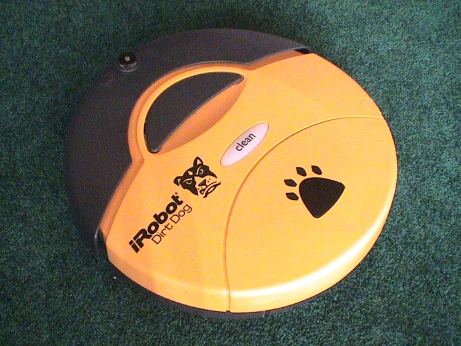
—
Title: From Cleaning Floors to Acting as Personal Assistants: The Transformative Potential of Robot Vacuums in Everyday Life
Robot vacuums have long been praised for alleviating one task from our housekeeping responsibilities. But what if they could accomplish so much more? New findings from the University of Bath suggest that the idle time of your Roomba could be utilized for extensive household assistance.
During the CHI Conference on Human Factors in Computing Systems this week, researchers from Bath revealed pioneering insights indicating that these household robots—initially created merely to collect dirt—possess the capability to be reconfigured into multifunctional, multitasking aides.
“Mobile household robots, such as vacuum cleaners and lawnmowers, are often seen as limited, single-purpose tools; however, there is a compelling argument that they are underutilized for practical activities,” states lead researcher Yoshiaki Shiokawa, a PhD candidate at the university’s Department of Computer Science. “For the majority of the day, they remain unused.”
A Significant Reservoir of Unused Capability
The research conducted by the team showed that robot vacuum cleaners are engaged in cleaning for less than two hours each day. This results in approximately 90% of their operational time being unutilized—a surprising figure that led to deeper exploration.
To investigate alternative functions these robots could assume, Shiokawa’s team consulted with 12 top experts in human-computer and human-robot interaction. The investigation yielded over 100 potential tasks that robot assistants could manage during their inactive periods, spanning from functional to whimsically creative.
To implement their concepts, the team modified a standard commercial robot akin to a Roomba to execute four innovative, practical functions:
– Serving as a mobile wireless phone charger, providing power where necessary throughout the house.
– Projecting exercise videos onto walls or ceilings to facilitate workout sessions anywhere indoors.
– Overseeing home security remotely, offering mobile monitoring and hazard detection.
– Displaying temporary “Do Not Disturb” signals during work calls for remote employees.
These prototypes illustrate that, with relatively straightforward adaptations—including incorporating projectors, displays, or lightweight mechanical elements—domestic robots can evolve far beyond their initial design.
The Significance of Mobility: Why It Matters
In contrast to stationary smart home gadgets like voice-activated assistants or fixed security cameras, mobile robots can traverse different rooms and areas. This inherent mobility creates a multitude of opportunities for services that necessitate physical presence, such as:
– Delivering a cup of tea or a remote control to someone seated.
– Watering plants according to a schedule.
– Finding a misplaced set of keys.
– Entertaining pets with moving toys.
– Reminding individuals to take their medication by delivering notifications with a physical cue.
– Aiding elderly or disabled users with mobility by providing a stable surface to hold onto.
“Idle moments offer unique opportunities for valuable interactions,” elaborates Dr. Adwait Sharma, co-author and academic supervisor of the project. “It coincides with the increasing demand for adaptable robots and integrated systems that can seamlessly integrate into our everyday lives.”
A Vision of More Intelligent, Active Robots
As the market for domestic robots is anticipated to expand at nearly 19% each year through 2028, homeowners might soon encounter a new breed of multifunctional robots that not only clean but also actively assist in daily activities.
Shiokawa and his group envision a future where robot vacuum cleaners and comparable devices evolve into highly integrated, personalized aides—a significant shift from the basic sweepers they currently are.
“Imagine how much more efficiently households would operate if Roombas could transform into household aides,” remarks Shiokawa. “Rather than disliking your robot for being inactive all day, you may soon question how you ever did without your multitasking mechanical assistant.”
The University of Bath team conveys a clear message: Don’t allow technology to sit idle. With ingenuity and careful engineering, even the roaming vacuum cleaner can become a vital component of a smarter, more responsive home.
—
Support Independent Science Journalism: Make an Impact Today
If our reporting has enlightened or motivated you, please consider making a contribution. Every donation, regardless of size, empowers us to keep providing accurate, engaging, and reliable science and medical news. Independent journalism requires dedication, effort, and resources—your assistance ensures we can continue to uncover the stories that are most important to you.
Join us in making knowledge accessible and significant. Thank you for your support!